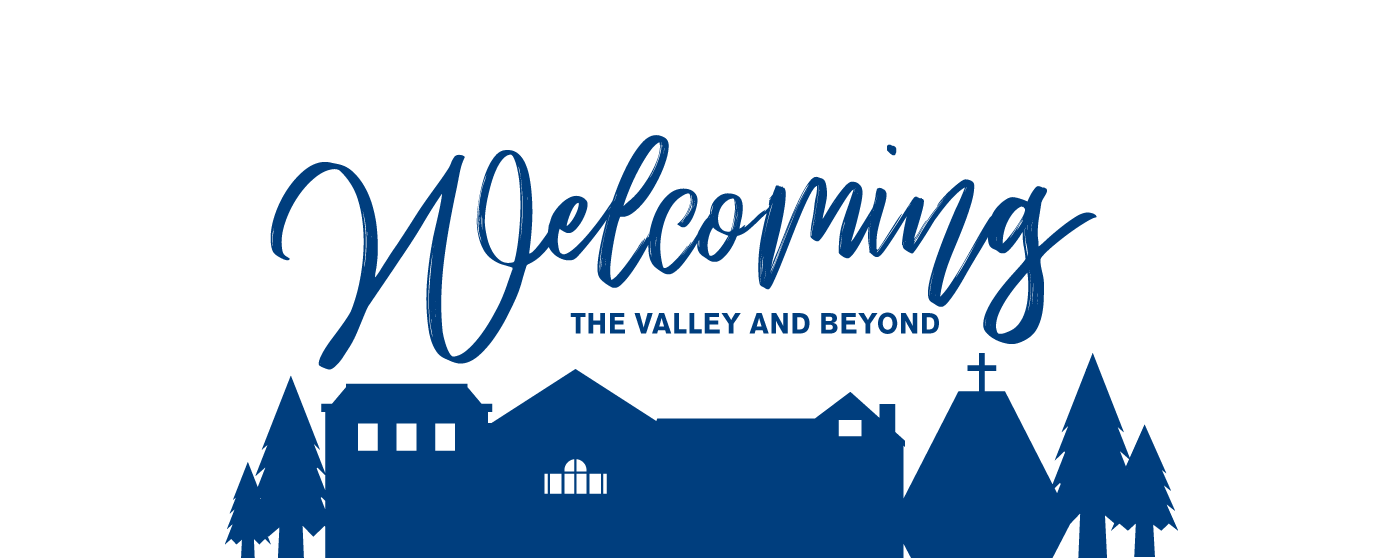
No two of Fresno Pacific University’s more than 4,200 students step onto campus or log in online for the first time with the same background, experience, needs, advantages and disadvantages.
But they all—traditional, degree completion, graduate or seminary at any of the five campuses—want to be welcome.The mission, history, Christian commitment and very location of FPU throughout the Central Valley drives staff and faculty to welcome students as the university grows and becomes more diverse; especially those for whom college, let alone a private college, seems out of reach.
Finances present a major barrier to a college education, particularly in the Central Valley, which most FPU students call home. The region is second in the nation in concentrated poverty, and only 13-20 percent of adults in its six counties have a bachelor’s degree. (The statewide average is 32 percent.) At Fresno Pacific, 49 percent of students are the first in their families to attend a four-year college or university and 56 percent come from families that earn less than $40,000 per year.
Jon Endicott, vice president for enrollment and student services, oversees a team that works with prospective students at high school and junior college campuses, churches and workshops to introduce them to financial aid and other resources. “We understand the challenge students and their families face to even consider a private university, and we want them to know there is help,” he says.
Some 98 percent of students receive financial aid. “There are scholarships for academics; athletics; music, art and theater performance; and for those going into professions such as education,” Endicott says. “Our goal is that no qualified student is kept from attending FPU because of finances.”

Increasing Abilities
While some departments welcome students to campus, others keep that feeling alive once they arrive. Melinda Gunning, director of academic and disability support services, works to ensure all students have equal access, including those with physical, emotional and learning disabilities.
She says it boils down to one question: “If a student is otherwise qualified, once they are admitted, what do they need to make our services accessible to them?”
Thus, a student with a reading disability may use software that reads textbooks out loud. Others may have a service or emotional support animal attend classes and live on campus with them. Gunning herself has guided students with visual impairments as they learn their way around campus.
Helping comes with challenges. “Our web team has been working to make sure our web pages are accessible,” Gunning notes. “Somebody who has limited vision still needs to be able to have access to our web page.”
Software that reads text aloud requires extra text to describe visual content. Adding closed captioning to all video materials for those with difficulty hearing is another undertaking. FPU is also adding more automatic doors to increase physical accessibility.
Although larger universities provide accommodations, FPU’s size and focus on community gives it an advantage. “I was so pleased a few years ago when a student said she had transferred from a larger university, and that because of our small size we’re more personable and are able to get to know the students. [She said] we often provide things a lot more quickly than a larger university,” Gunning says.
International and adult students have different needs from traditional undergraduate students. Pam Schock, assistant dean of student development and residence life, says the International Programs & Services Office works with international students and the government. It also plans multicultural nights “to help students feel like they belong,” she says.
Regional campuses work to enhance the experience of degree completion and graduate students, according to Jorge Lopez, director of regional campus operations. These are usually adults who balance coursework with families, jobs and other responsibilities.
Located in Bakersfield, Visalia, Merced and North Fresno, regional campuses are close to where their students live and work, as well as area community colleges. Partnerships with these two-year schools “create pathways for students from the junior colleges to come to FPU,” he says.
Establishing relationships with prospective transfer students early, Lopez adds, allows the university to debunk myths and answer questions about financial aid and private Christian education. There’s also a push to include regional campus students by providing each location with a bookstore presence, chapel services
and athletic pep rallies.
Another group with considerations of its own are military veterans. David Black, FPU’s regional veteran outreach representative, draws on his experiences as a United States Navy veteran and degree completion graduate to help veteran students. He partners with community college veterans resource centers.
Most vets, he says, use the G.I. Bill to finance their education, so money isn’t a major barrier. But like other adults in the degree completion program, many are juggling families and full-time jobs.
The cohort, where groups of adult students take classes together throughout their program, is attractive because in some ways it emulates the military experience. “It creates a sense of camaraderie, that community engagement in the academic realm, that crosses over from serving in the military,” Black says. “They have that sense of family, cohesiveness, that helps with maintaining the vision and the mission. The new mission now is education—getting that degree,” Black says.
Online study is another way to welcome students. FPU has 12 fully online degree programs, and many face-to-face courses offer an online component. Students enrolled in some degree completion programs may take one evening class per week at a regional campus, or complete the same coursework online. “Students will go from one to the other if situations arise,” Endicott says.
“Students prefer to meet face to face but because of a job or travel, if they find they don’t have time for even one night a week, they have found it’s easy to jump across.”
Across the university, people are available to address students’ emotional, spiritual and vocational needs. “It’s not just about them going to class. It’s about them being well and going to class. If a person isn’t well, then that’s going to affect their ability to learn,” Schock says.
The good news is that once at FPU, students are likely to graduate. The four-year graduation rate is 53 percent and the six-year rate is 58 percent, both highest in the Valley and well above the national averages. Student debt rate is also thousands of dollars below the national average, according to the federal College Scorecard, online at fpu.edu/312-scorecard.
An attitude of welcome and a structure of support help students meet the challenges of academics and life. “Life is difficult, and there is always some kind of thing that can buck you off of your goals,” Shock says. “Part of the university’s job is to help students persist in the face of adversity.”
FPU offers ways for students interested in STEM to get a head start. See fpu.edu/stemlc


